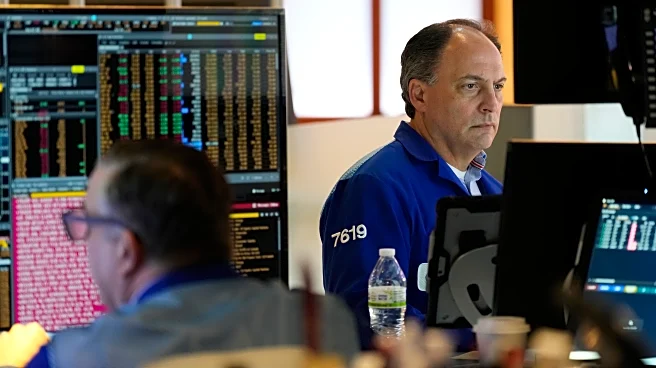What's Happening?
The Swiss government has received crucial backing from a centre-right political party for its proposed overhaul of economic relations with the European Union. This support comes as the government faces
opposition from the Swiss People's Party (SVP), which argues that the deal threatens national sovereignty and identity. The proposed package includes measures on electricity, state aid, transport, and freedom of movement, and was agreed upon last December. Despite opposition, a recent opinion poll suggests that Swiss voters are more likely to support the EU deal than reject it. The deal is set to face a referendum, potentially as late as 2027.
Why It's Important?
The backing from the centre-right party is significant as it could influence the outcome of the referendum and the future of Swiss-EU relations. The deal aims to stabilize the Swiss economy amid global uncertainties, but faces resistance from those who fear it compromises Switzerland's independence. The SVP's opposition highlights the ongoing debate over national sovereignty versus economic integration. Additionally, U.S. tariffs on Switzerland have diminished the appeal of closer ties with the United States, making the EU deal more attractive to some Swiss voters.
What's Next?
The Swiss government will continue to advocate for the EU deal, emphasizing its potential economic benefits. The referendum process will involve extensive public debate and campaigning from both supporters and opponents. The outcome will have long-term implications for Switzerland's economic strategy and its relationship with the EU. Observers will watch closely to see if the centre-right party's support sways public opinion and if the SVP can mobilize enough opposition to defeat the deal.
Beyond the Headlines
The debate over the EU deal reflects broader concerns about national identity and sovereignty in Switzerland. The country's unique position in Europe, as a neutral state, adds complexity to its international relations. The decision will also impact Switzerland's role in global trade and its ability to navigate economic challenges independently.










